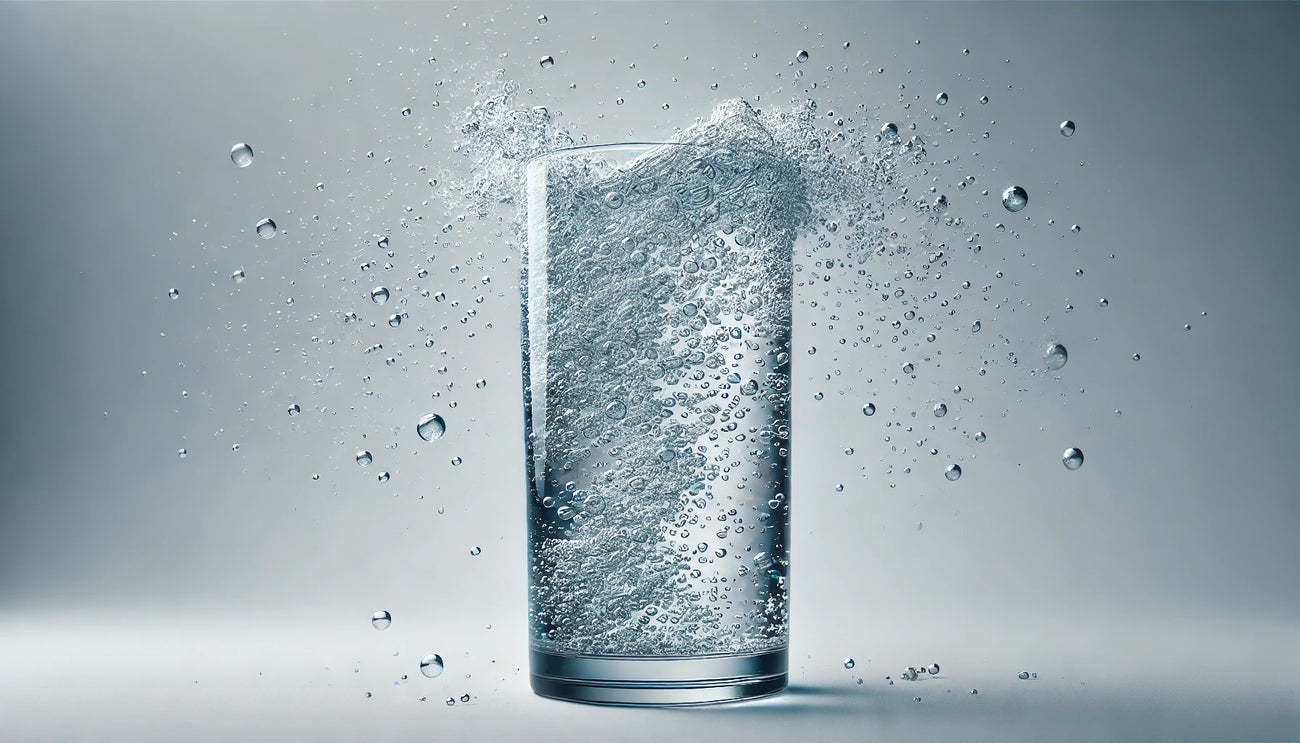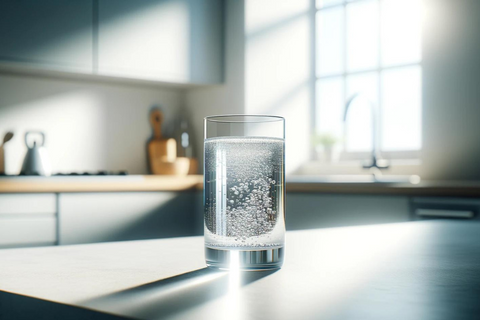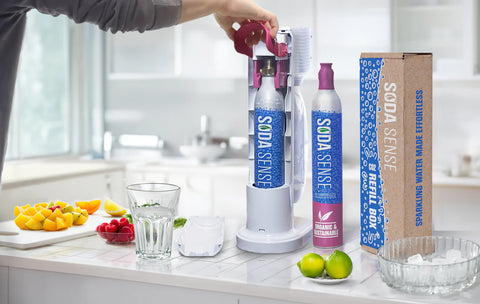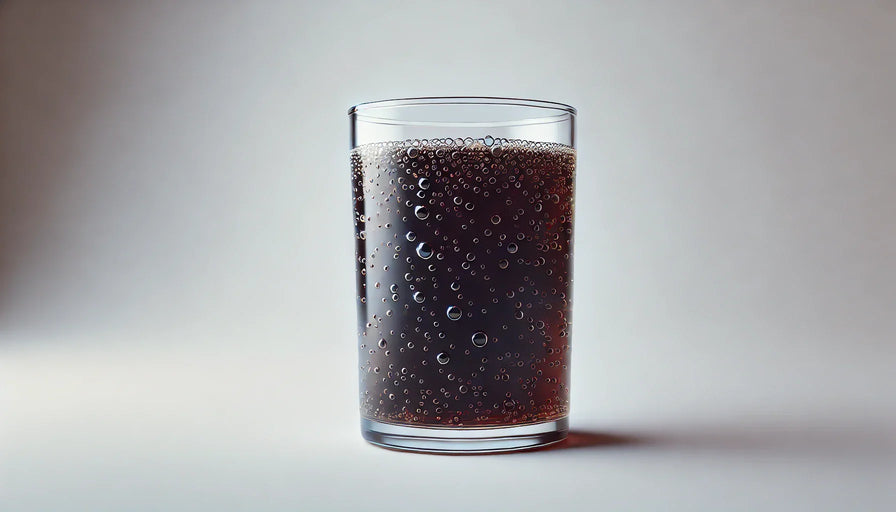
When Was Carbonation Invented?

When was carbonation invented?
Carbonation was invented in 1767 by Joseph Priestley. His method laid the groundwork for the creation of carbonated beverages, eventually leading to the widespread popularity of soda, sparkling water, and even alcoholic beverages.
Carbonated beverages have become a staple in our diets, offering refreshments and a unique sensory experience. Not to mention the revolution of health and wellness through beverages like plain sparkling water and mineral water.
The invention of carbonation was a revolutionary development in culinary history, transforming plain water into a fizzy delight enjoyed by many.
This article explores the evolution of carbonated drinks, their impact on culture, and the science behind the delightful bubbles.
Table of contents
The history of Joseph Priestley
Joseph Priestley, an English chemist and theologian, is credited with the discovery of carbonation in 1767. His initial experiments involved the manipulation of gases, particularly with a focus on what he termed "fixed air"—now known as carbon dioxide.
He discovered that if water were exposed to this gas, it would produce a fizzy effect, a phenomenon that intrigued him and spurred further investigations.
Priestley's landmark work began when he was employed at the Leeds Philosophical and Literary Society. Here, he developed a method to infuse water with carbon dioxide, using a simple apparatus that involved a barrel of water and a gas generator.
This innovation not only allowed him to carbonate water but also set the foundation for carbonated drinks. He even published a treatise in 1772 titled "Impregnating Water with Fixed Air," where he described his techniques for creating carbonated water.

The implications of Priestley’s discovery were profound. Sparkling water soon became popular among the public, leading to the establishment of soda fountains and the production of beverages with various flavors.
His experiments extended beyond just carbonation; Priestley was also involved in extensive studies of dental and atmospheric gases, contributing significantly to the scientific community of his time.
Priestley’s impact on both chemistry and the beverage industry cannot be overstated. His efforts paved the way for subsequent inventors and entrepreneurs, including Johann Jacob Schweppe, who founded the Schweppes company in the late 18th century, further commercializing carbonated beverages.
Today, carbonation is a staple in soft drinks and sparkling waters worldwide, illustrating how one man's curiosity laid the groundwork for an entire industry.
Related read: Who Invented Soda Water?
The scientific principles behind carbonation
Understanding carbonation hinges on grasping the scientific principles behind it, especially the behavior of gases in liquids. When carbon dioxide (CO₂) dissolves in water, it forms carbonic acid (H₂CO₃), which produces the characteristic fizz of carbonated drinks.
This process occurs under pressure; once the pressure is released—like when you open a bottle of soda—the dissolved gas escapes, resulting in bubbles.
In the beverage industry, the balance of pressure, temperature, and CO₂ concentration is vital, as it directly impacts the fizziness and overall quality of the product.
Related read: Is Carbonation Bad for Your Bones?

Historic impact on carbonation in beer
Joseph Priestley’s discovery of carbonation not only transformed the beverage industry but also significantly influenced brewing, particularly in enhancing beer's carbonation.
Before Priestley's innovations, beer was typically flat, with only minimal carbonation achieved through natural fermentation. His techniques enabled brewers to precisely control carbonation levels, marking the beginning of a new era in brewing.
As carbonated water gained popularity, brewers started experimenting with infusing their beers with carbon dioxide, resulting in a more enjoyable mouthfeel.
This newfound ability to carbonate beer allowed it to be bottled and served with a refreshing fizz, paving the way for a variety of beer styles characterized by distinct carbonation levels—from lightly carbonated ales to richly effervescent lagers.
Related read: The Origin of Tonic Water

Historic impact on carbonation in wine
Joseph Priestley's invention of carbonation catalyzed fascinating advancements in the wine industry. Prior to this breakthrough, wines were predominantly still, exhibiting only a hint of natural effervescence. As the advantages of carbonation became clear, winemakers began to explore the realm of sparkling wines, paving the way for beloved styles like Champagne.
The ability to regulate carbonation levels enabled vintners to elevate the sensory experience of wine, introducing a delightful fizz that beautifully complemented the intricate flavors of various grape varieties. This transformation not only revolutionized wine production and enjoyment but also unlocked new marketing opportunities and consumer appeal.
Today, sparkling wines stand as a celebrated category in their own right, showcasing the profound impact of Priestley's groundbreaking work on the beverage landscape.
Related read: When Was Club Soda Invented?
The impact on home soda
As carbonated beverages gained immense popularity during the 19th century, consumers expressed a desire to recreate the fizzy drinks they enjoyed at home. This demand sparked innovation, leading to the development of home soda makers, which allowed individuals and families to carbonate their own water, whether filtered water or bottled water, at home by infusing it with carbon dioxide.
The convenience and novelty of creating fizzy drinks from the comfort of one’s kitchen opened up a new realm of possibilities for beverage customization.
The production of CO2 canisters became crucial in making home carbonation accessible. These canisters, filled with compressed carbon dioxide, provided a portable and efficient way for consumers to carbonate their drinks without the need for complex equipment.
Over the years, advancements in technology and manufacturing enabled the mass production of these canisters, making it easier for home soda makers to create their favorite fizzy beverages.
The thriving market for home soda makers and CO2 canisters highlights how Priestley’s original discovery of carbonation transformed not only commercial beverage options but also personal drinking experiences in households across the globe.

Summary
Joseph Priestley's pioneering work in carbonation laid the foundation for the modern beverage industry, profoundly influencing the creation of carbonated water, beer, and sparkling wines.
His experiments in the late 18th century enabled better control over carbonation levels, resulting in the emergence of various beverage styles that enhanced mouthfeel and flavor.
The subsequent demand for carbonated drinks at home spurred the development of home soda makers and CO2 canisters, allowing consumers to create their own fizzy beverages.
Priestley's discoveries not only transformed commercial options but also revolutionized personal drinking experiences, leaving a lasting impact on how we enjoy carbonated drinks today.
Recommended reading

How to Give Back During Thanksgiving 2025
Key takeaways Thanksgiving is a time to express gratitude and share with those in need. From volunteering at local shelters to donating food and essentials, there are numerous ways to give back to...

What Does Carbonation Do to Your Body?
What does carbonation do to your body? Carbonation alone typically has minimal effects; however, it can cause bloating and discomfort for some, and it may worsen acid reflux due to carbon dioxide ...

What Are the Health Benefits of Sparkling Water?
Summary Sparkling water isn't just a refreshing drink—it comes with surprising health benefits too. From aiding digestion to improving hydration, discover how sparkling water can be a healthy addi...